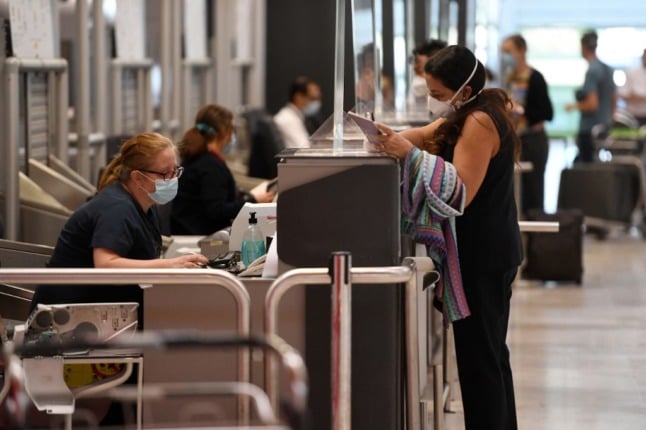Spain’s Official State Gazette (BOE) confirmed this newest extension to the temporary restriction order for non-essential trips and unvaccinated travellers from outside the bloc, first approved on July 17th.
The measure affects unvaccinated people from most non-EU countries who want to travel to Spain, as those who can prove vaccination with one of the inoculations Spain accepts can visit the country for tourism or other non-essential reasons.
Previous BOEs gave reasons for the extension, stating that “the epidemiological situation has not changed substantially”, but this edition simply confirmed the extension of the current rules in place now until midnight October 31st 2021.
Spain also has a list of low-risk third countries whose travellers wanting to visit Spain for non-essential reasons can come regardless of without having to present proof of Covid-19 testing or vaccination. Travellers from these nations are in effect exempt from Spain’s travel restrictions for third countries.
The current list of third countries which are exempt from the restrictions includes Australia, Bosnia and Herzegovina, Canada, China, Jordan, New Zealand, Qatar, Republic of Moldova, Saudi Arabia, South Korea, Singapore, Ukraine, Uruguay as well as Hong Kong, Macau and Taiwan.
However, the BOE states that this list was amended on September 23rd to include Chile, Kuwait and Rwanda in the above list and remove Bosnia and Herzegovina as well as the Republic of Moldova, although this does not reflect on Spain’s Health Ministry website (check with your embassy).
Travellers from third countries on the list may be able to enter Spain without the need for a negative Covid test or a vaccination certificate, but they still need to fill out a health control form, which can be found here.
It’s also important to check whether you need a visa or any other documents to enter Spain first and, if so, contact your nearest Spanish embassy to find out if they’re currently issuing these documents.
The other reasons that can be used for travel to Spain from third countries that fall under the non-essential travel restrictions are:
- You are a resident in the EU or Schengen country.
- You have a visa for a long duration stay in an EU or Schengen country.
- You work in transport, such as airline staff or are in a maritime profession.
- You work in diplomatic, consular, international organisations, military or civil protection or are a member of a humanitarian organisation.
- You have a student visa for a country in the EU or Schengen zone.
- You are a highly qualified worker or athlete whose work cannot be postponed or carried out remotely.
- You are travelling for duly accredited imperative family reasons.
- You are allowed entry due to force majeure or on humanitarian grounds.
- And as mentioned earlier in the article, if you have a vaccination certificate that Spain’s Ministry of Health recognises, as well as their accompanying minors (unless they’re under 12 years of age).
Those travelling to Spain from the UK and the US
As stated by Spain’s Health Ministry, “For persons resident in the United Kingdom of Great Britain and Northern Ireland coming directly from this country, in addition to the vaccination certificate, diagnostic certificates of NAAT tests (nucleic acid amplification tests, e.g.: RT-PCR, RT-LAMP, TMA, HAD, NEAR, CRISPR, SDA…..) will also be considered valid”.
READ ALSO: What travellers from Spain to England should know about the UK’s new Covid border rules in October
As for travellers from the US, On Friday September 3rd Spanish health authorities removed the United States from the list of third countries whose travellers do not have to meet Spain’s Covid travel restrictions.
READ MORE: What do Spain’s new Covid restrictions for the US mean for American travellers?



 Please whitelist us to continue reading.
Please whitelist us to continue reading.
Member comments